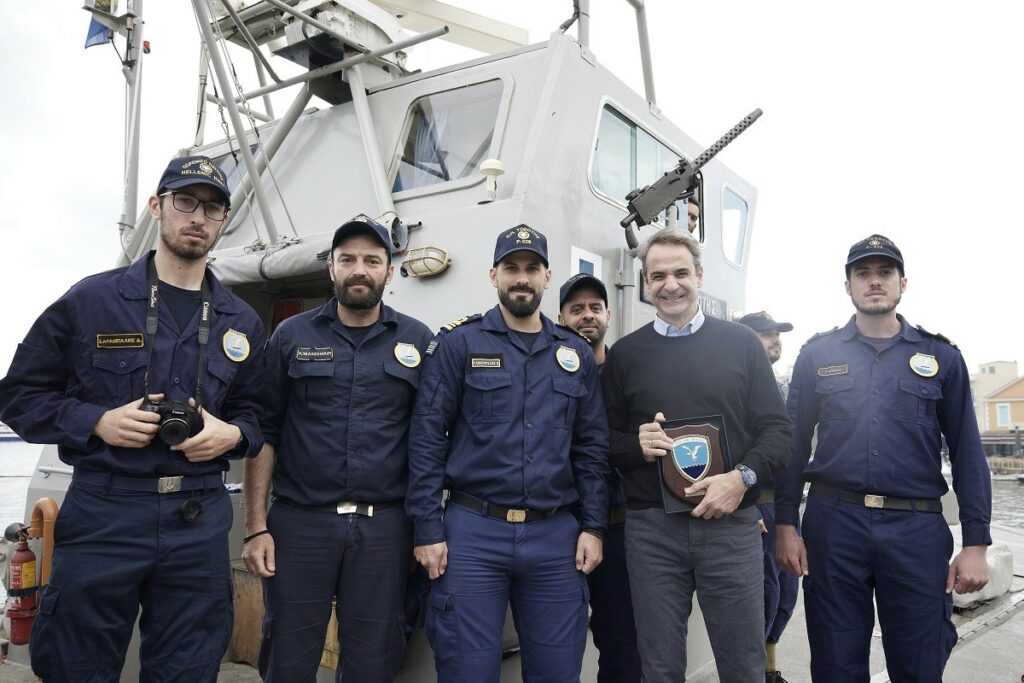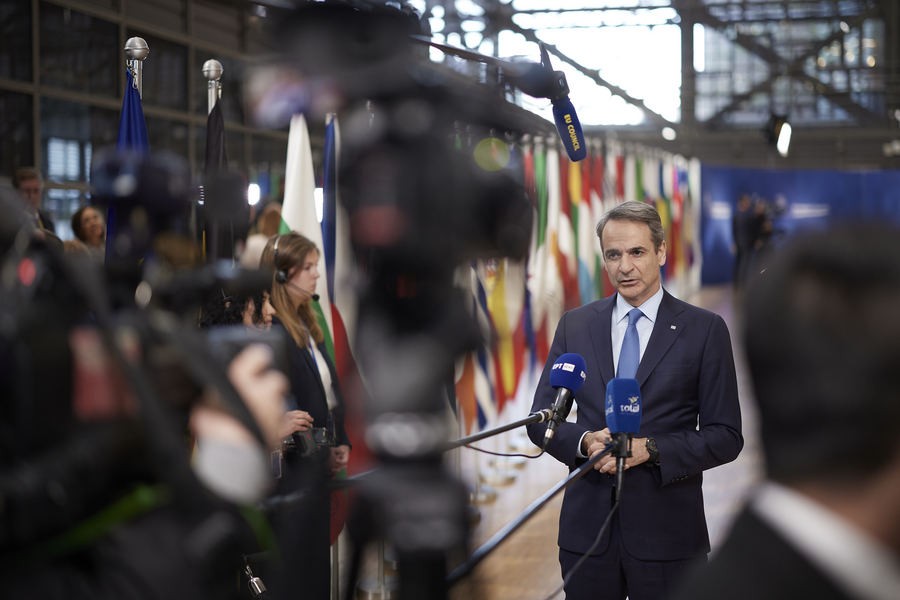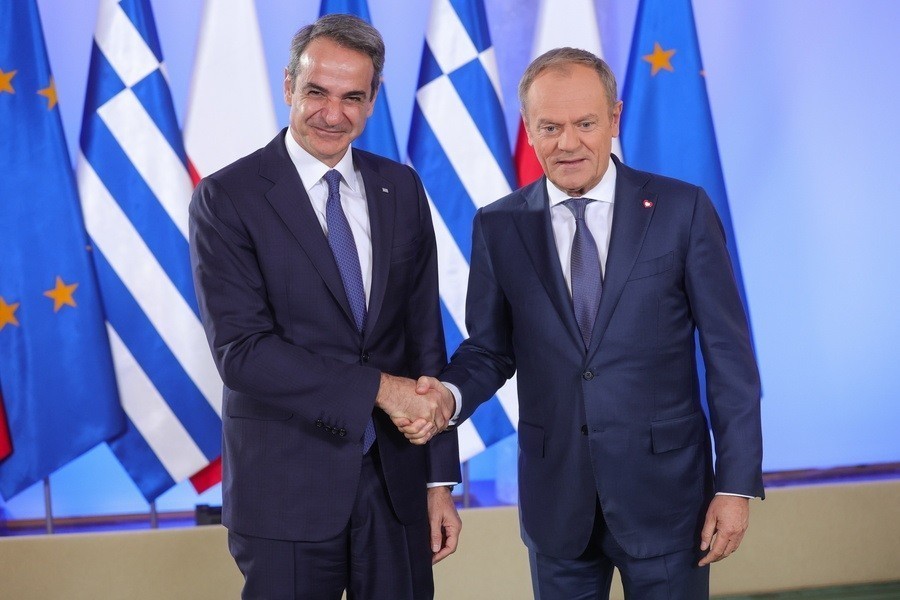
#Tags:
BrusselsmigrationΜigration is a European challenge that needs European solution, says Alexis Tsipras
The migration issue is one that Europe will have to deal with for many years to come, Prime Minister Alexis Tsipras said in statements after an informal EU leaders’ mini-summit on asylum and migration held in Brussels on Sunday.
“ The big dilemma is whether we will face this challenge in isolation or whether we will face it as a collective European challenge,” Tsipras said, while noting that the crisis was not likely to be passing or incidental problem.
The refugee crisis was a European crisis and its solution must also be European, Tsipras added, while voicing his opposition to a fragmentary or unilateral approach that was unlikely to provide solutions. The Greek prime minister called for solidarity and mutual support, as well as a sharing of the burdens within the EU.
“ I expressed the view that we must look equally seriously at the protection of EU borders and the external aspects of the migration crisis. The EU must orient itself toward a sharing of responsibility, not allowing the burden to fall on the reception countries,” he added.
“ The issue is whether this crisis will be treated as a European collective challenge or a crisis that concerns only those who have to deal with the symptoms, with each country seeking separate national solutions,” the Greek prime minister said.
Most were leaning toward treating this as a European crisis, he added, though no decision was reached at the preparatory meeting on Sunday, while the discussion will continue at the European Council on June 28-29.
“ We, on our part, stressed the need to not proceed in a fragmentary way to tackle this problem. Unilateral actions can in no way provide solutions but will create even bigger problems,” Tsipras said.
During the mini-summit, the Greek prime minister called for a revision of the European asylum system so that the burden of caring for refugees might be shared out more fairly.
His proposals also included greater support for first-reception countries in Europe, support for transit and origin countries, a stronger European mechanism for refugee returns and the replacement of the EU border agency Frontex with a powerful European border and coast guard.
The Greek prime minister expressed grave reservations, meanwhile, about the proposed “closed-type” detention centres for refugees located outside the EU.
The prime minister said that he had asked the EU to seriously re-examine the protection of European borders and both the external and internal aspects of the migration crisis. This meant that Europe must strive for a policy of shared responsibility, solidarity and mutual support and not allow the countries that received migration flows to shoulder the burden alone, he said.
As to how the discussion will end, Tsipras underlined that this remained open given the disagreements that exist. The countries that agree on the need for a collective and coordinated approach should proceed together with initiatives for multi-lateral cooperation in order to deal with the problem, he added.
Those countries that do not agree with this approach cannot be forced, he added, but pointed out that they will also certainly find themselves facing other sorts of problems at some point in time. When this happens, he said, they might well find that other countries have a similar response to their own problems as theirs on the refugee issue.
Tsipras said that Greece wanted a coordinated reduction of secondary flows though these were not occurring from Greece because its northern borders had been closed for some time due to unilateral actions. If there were any, he added, these would be extremely small-scale and use illegal routes.
“ For Greece, the top priority is to eliminate primary flows, if this is at all possible, with respect to the EU-Turkey Statement. As you can understand, a reduction of such illegal primary flows can allow the EU-Turkey agreement to act constructively,” he said.
He clarified that this did not mean “ shutting the doors and windows” to legal migration but only to the illegal activity of traffickers, while allowing legal flows through the asylum process, which respected international treaties and international law.
The Greek prime minister especially emphasized the reunification of families of refugees.
“ Europe must not present a repellent face, which is in total opposition to its principles and values; a face that, unfortunately, is shown by many countries at this time,” he said. In Greece we have a large number of families that need to be reunited and we must immediately carry out the procedures necessary for this to happen,” Tsipras added.
Source: ANA-MPA

